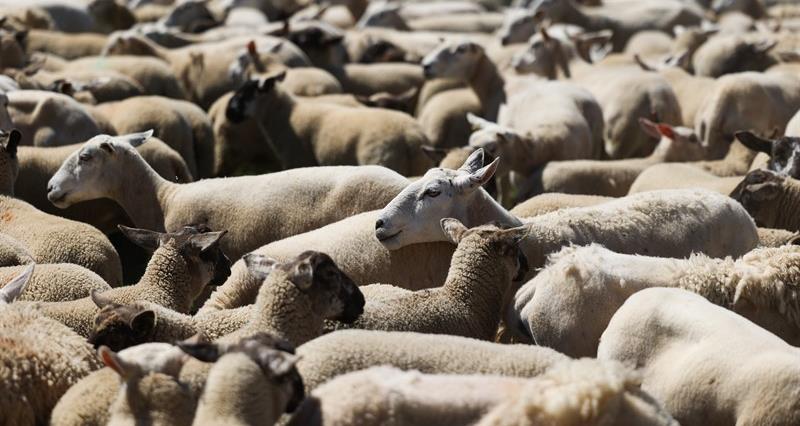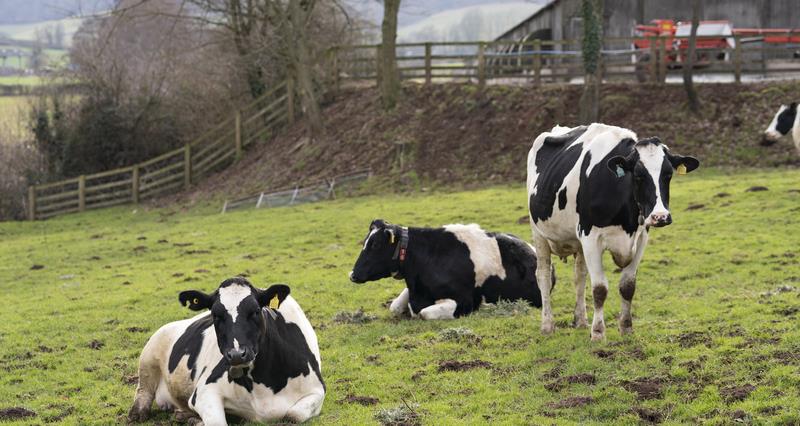For the latest news and the current situation, please see also Bluetongue – essential information.
For guidance on farm management practices and protocols see a guide to preparing for Bluetongue virus (BTV) on farm.
Bear in mind the situation is constantly changing. You can check for the latest updates on the government's websites:
Cases in the South region
There are cases that are not in bluetongue zones, linked to animals that have moved to premises before bluetongue restrictions were put in place or through importing animals from countries close to where disease is present.
The premises are under restriction and the infected animals have been culled. Further testing will be undertaken in to ensure there has been no local transmission.
Decisions around the management of cases we have seen in the South region have been made on a case-by-case basis.
Information has been kept confidential to protect the individual farmers.
We recommend that members follow Defra guidelines for preventing bluetongue.
When bringing stock onto the holding, for domestic movements consider pre-movement testing, for imports be aware of the disease circulation in Europe and give due consideration to transport routes.
TB testing
If you are having a TB test, or routine on-farm vaccination is being carried out, there is no need to be concerned about the repetitive use of needles and cross infection.
Biosecurity is in place for TB tests and although there is a theoretical risk, this is low. Mechanical transmission of BTV via tuberculin intradermal (or skin) testing of cattle and other species is considered to be very rare and of no significance for the further secondary spread.
Additionally, OVs (Official Veterinarians) and ATT (Approved Tuberculin Testers) are required to ensure that tuberculin needles are wiped between the animals with cotton wool moistened with surgical spirit and any needles contaminated with blood or other material are changed.
The statutory TB testing programme continues as normal and we would recommend you speak to your vet if you have any concerns.
Culling and compensation
Culling is done following a risk assessment by Defra. It may be used in circumstances where it is believed disease is not circulating in the midge population and an outbreak might be prevented.
Once bluetongue is known to be circulating in the domestic midge population, culling of livestock is not an effective control measure to deal with disease
If your animal were required to be culled to control bluetongue, you would receive compensation for that animal (unless you had imported diseased animals). It is not expected that large numbers of animals would be culled, since culling becomes ineffective once disease is established within midge populations.
When a domestic animal infected with BTV is culled for disease control purposes, the compensation will be paid as the animal’s market value immediately before it was slaughtered “had it not been affected or suspected of being affected with, or had it not been exposed to the infection of, bluetongue”.
The provisions for the compensation are set out in the Animal Health Act 1981 and The Bluetongue Compensation Order of 2007/2996.
APHA protocols and the decision-making process
Animals coming from a restricted area to a free area are subject to a movement licence which requires pre and post movement testing.
When the animals move from the BTV zone to the premises outside of the BTV zone, the restriction notice is served on them until they receive a negative result from the post movement test carried out between six and 10 days after the move.
If the test is positive, restrictions will be served on the holding. Any decision to cull animals will be taken on a case-by-case basis, but in previous cases APHA have been culling them.
There could be follow up tests on the remaining animals on the holding.
If there is no evidence of the BTV circulation in the area, it is unlikely a TCZ will be declared, however Defra/APHA will carry out relevant assessments prior to taking any decisions.
Restrictions are lifted when APHA is satisfied that there is no active infection present of the holding.
Surveillance testing
Surveillance testing is carried out in the BTV control zones (RZ) to establish any potential spread of the disease and to facilitate epidemiological investigations.
APHA will prioritise the areas and select premises for surveillance testing.
On each of the selected holdings, 35 cattle that have been resident for at least a month, are over six months of age and not vaccinated for BTV will be blood sampled.


